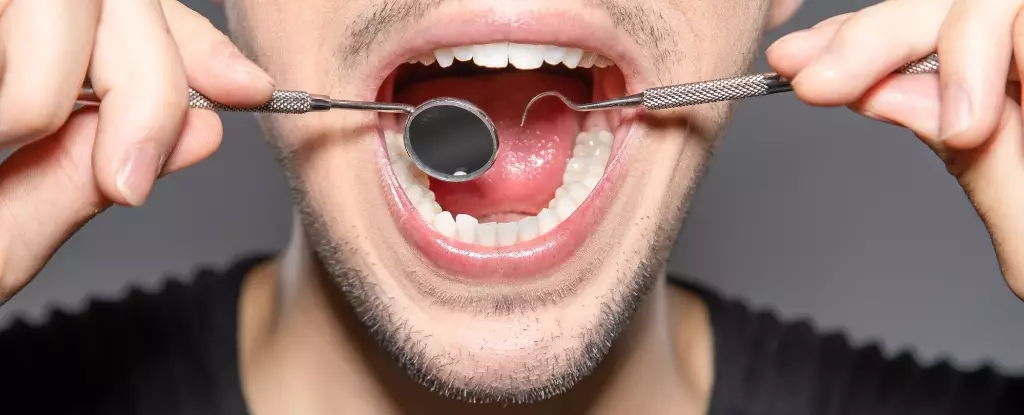In the United Kingdom, regular dental checkups and oral hygiene visits are crucial in identifying the early stages of mouth cancer. Unfortunately, the shortage of dentists in the country has resulted in a concerning rise in cases of mouth cancer being detected too late. According to the charity Oral Health Foundation, 90% of NHS dentists surveyed by the BBC last year were not accepting new adult patients for NHS treatment. This alarming statistic highlights a significant barrier to timely diagnosis and treatment for individuals at risk of mouth cancer.
Every year, approximately 9,000 people in the UK are diagnosed with mouth cancer, and tragically, over 3,000 lives are lost to this disease. However, if mouth cancer is caught early, the cure rate is excellent, with a success rate of over 90% through relatively simple treatment. Unfortunately, nearly half of new mouth cancer diagnoses in the UK are detected late, significantly reducing the chances of successful treatment and recovery.
If individuals struggle to find a dentist or secure a dental appointment, it becomes even more critical for them to take proactive measures in monitoring their oral health and detecting early signs of cancer. There are several key symptoms that may indicate the presence of mouth cancer:
– Ulcers in the mouth that do not heal within three weeks
– Lump or swelling anywhere in the mouth, jaw, or neck that persists for more than three weeks
– New red or white patches in the mouth
– Numbness of the tongue or other areas of the mouth
– Unexplained loose teeth
– Chronic sore throat or hoarseness lasting for more than six weeks
If any of these symptoms are present, it is imperative to seek medical attention from a GP or dentist as soon as possible. In the UK, dentists and doctors can refer patients to hospital specialists for urgent suspected cancer assessments. These referrals ensure that individuals are seen within 14 days to either confirm or exclude a cancer diagnosis.
Advancements in Treatment and Personalized Approaches
The field of mouth cancer treatment has shown significant advancements in recent years, leading to improved outcomes for patients. New techniques, such as robotic surgery and immunotherapy, have expanded the range and scope of available treatments. Additionally, a deeper understanding of the disease has allowed doctors to personalize treatment approaches, enhancing the patient’s experience and increasing the chances of successful recovery.
Clinical trials and patient participation have played a crucial role in advancing knowledge and providing high-quality evidence to support treatment selection. Many patients successfully complete treatment and recover well, benefiting from the progress made in the medical field. However, for some patients with advanced cancer stages and complex treatment requirements, there can be noticeable impacts on facial appearance, speech, swallowing, and shoulder movement. These physical changes can significantly affect a person’s ability to socialize and engage in daily activities, as their speech and ability to eat or drink may be impaired. In some cases, employment and lifestyle adjustments might become necessary, particularly for individuals whose work or recreational interests depend on good shoulder or arm movement.
Lifestyle Factors and Preventive Measures
Several lifestyle factors are closely associated with an increased risk of developing mouth cancer. These include smoking, tobacco use in various forms, excessive alcohol consumption, poor diet, and chewing betel quid (paan). Furthermore, certain cases of mouth cancer have been linked to the human papillomavirus (HPV), which can be acquired through oral sex. It is also worth noting that individuals who take immunosuppressive medication, such as organ transplant recipients, may have a higher risk of developing mouth cancers. However, it is crucial to remember that nearly half of all mouth cancers are preventable.
Regular dental checkups and proper oral hygiene play a vital role in the early detection and treatment of mouth cancer. The shortage of dentists in the UK has significantly impacted the timely diagnosis of this disease, leading to a rise in cases of late detection. Recognizing the symptoms, seeking medical attention, and maintaining a healthy lifestyle are key factors in minimizing the risk of developing mouth cancer. With advancements in treatment options and personalized approaches, the outlook for individuals diagnosed with mouth cancer is steadily improving. However, there is a pressing need for increased access to dental care services and public awareness campaigns to ensure that individuals at risk receive the earliest possible diagnosis and appropriate treatment.


Leave a Reply